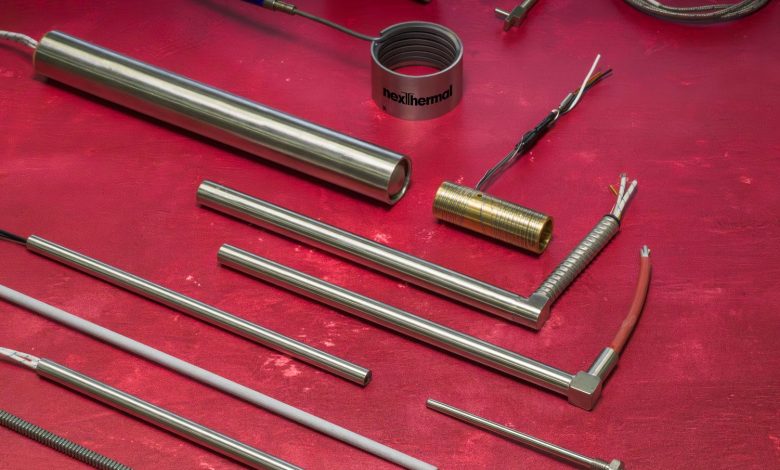How Cartridge Heaters Improve Accuracy in Mass Spectrometry

Mass spectrometry is a delicate process where precision and accuracy are paramount. Every variable in the process can impact the results, from the way a sample is prepared to the temperature at which it’s analyzed. But have you ever wondered how those tiny temperature fluctuations can be managed so effectively? That’s where cartridge heaters come into play. These small but powerful heating elements are at the heart of maintaining the exact conditions needed for accurate readings in mass spectrometry. Let’s delve into how cartridge heaters play a pivotal role in refining this essential analytical technique.
Maintaining Precise Temperature for Stable Readings
One of the critical factors in mass spectrometry is maintaining a stable temperature. Even a slight variation can lead to significant errors in the results. Cartridge heaters are specifically designed to provide precise and consistent temperatures, ensuring that the sample remains at the optimal level throughout the process. These custom heaters are engineered to fit snugly into the system, providing uniform heating across the sample area, which is crucial for obtaining stable and reliable readings.
The significance of precise temperature control cannot be overstated. It directly affects the stability of the ions generated in mass spectrometry, which in turn influences the accuracy of the measurements. By incorporating cartridge heaters, laboratories can achieve the level of temperature control needed to produce consistent and repeatable results. This precision is what makes cartridge heaters an indispensable component in the world of mass spectrometry.
Ensuring Consistent Heating Across Samples
In mass spectrometry, consistency is key. The sample must be heated uniformly to avoid discrepancies in the data. Cartridge heaters are designed to ensure that every part of the sample receives the same amount of heat. This uniformity is vital because uneven heating can lead to variations in the ionization process, which can skew the results and reduce the accuracy of the measurements.
Custom heaters are particularly effective in maintaining this consistency. They can be tailored to meet the specific requirements of the mass spectrometry setup, ensuring that every sample is treated with the exact same heating profile. This consistency across samples is what allows for more accurate comparisons and reliable data, making cartridge heaters a critical component in achieving high-quality mass spectrometry results.
Reducing Noise and Fluctuations in Measurements
Noise and fluctuations in measurements are the bane of accurate mass spectrometry. These unwanted variations can come from various sources, but one of the most common is temperature instability. Cartridge heaters help minimize these fluctuations by providing a steady, controlled source of heat. This stability reduces the noise in the system, leading to cleaner, more precise measurements.
Industrial heating systems, particularly those using resistance heating elements like cartridge heaters, are designed to minimize these fluctuations. The steady heat provided by these heaters ensures that the mass spectrometer operates within its optimal temperature range, reducing the likelihood of errors caused by temperature-related noise. By keeping the temperature consistent, cartridge heaters help improve the overall accuracy and reliability of the measurements.
Enhancing Sensitivity and Detection Limits
Sensitivity and detection limits are crucial aspects of mass spectrometry. The ability to detect low-abundance ions or small changes in concentration can make a significant difference in the quality of the data. Cartridge heaters play a vital role in enhancing this sensitivity by providing precise temperature control, which is essential for maintaining the integrity of the sample during analysis.
When the temperature is tightly controlled, the mass spectrometer can operate at its highest sensitivity, allowing for the detection of even the smallest signals. This is particularly important in applications where low-abundance ions are being measured. The precision provided by cartridge heaters ensures that these signals are not lost in the noise, leading to better detection limits and more accurate results.
Preventing Sample Degradation with Controlled Heating
Sample degradation is a common challenge in mass spectrometry, especially when dealing with heat-sensitive materials. Without proper temperature control, samples can degrade, leading to inaccurate readings or even total loss of the sample. Cartridge heaters provide the controlled heating necessary to prevent this degradation, ensuring that the sample remains intact throughout the analysis.
Custom heaters can be tailored to provide the exact amount of heat needed, avoiding excessive temperatures that could damage the sample. This controlled heating is essential in maintaining the integrity of the sample, allowing for more accurate and reliable results. By preventing sample degradation, cartridge heaters help protect the quality of the data, making them a vital component in mass spectrometry.
Improving Reproducibility in Mass Spectrometry Experiments
Reproducibility is a cornerstone of scientific research. In mass spectrometry, achieving reproducible results can be challenging due to the many variables involved in the process. Cartridge heaters contribute to improved reproducibility by ensuring that the temperature remains consistent across different runs. This consistency is crucial for obtaining reliable data that can be reproduced in subsequent experiments.
Industrial applications that rely on mass spectrometry often demand a high degree of reproducibility. Cartridge heaters, with their ability to provide precise and consistent heating, play a crucial role in meeting these demands. By maintaining the same temperature conditions across multiple experiments, these heaters help ensure that the results are consistent and reliable, making them an indispensable tool in mass spectrometry.






